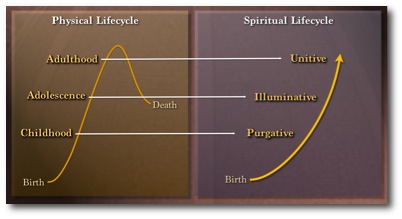I wrote this guide to surviving spiritual warfare and it was delivered to the Attollo groups this month. The links to the resources for this guide are at the bottom of this blog.
Surviving spiritual warfare requires a skill called situational awareness. We’ll provide a global view of the battlefield you were born into.
Situational Awareness
A Global View of the Battlefield
Situation awareness is a critical element of successful performance in the combat environment. The battlefield poses a variety of challenges to situation awareness: information overload, nonintegrated data, rapidly changing information, and a high degree of uncertainty brought on by a lack of needed information. Overcoming these problems is a major goal of the Land Warrior System. National Academies of Sciences, Engineering, and Medicine. 1997. Tactical Display for Soldiers: Human Factors Considerations. Washington, DC: The National Academies Press. More on this here.
The current state of the world
A person’s situation awareness can be described as his or her state of knowledge or mental model of the surrounding situation or the environment. It is not just spatial orientation but includes an understanding of the dynamics of the situation and the actions that are expected to take place in the future.
The surrounding situation or environment is that we no longer live in Christendom times. The Catholic Church has been replaced by secular humanism as the major influence in society’s overarching vision. The Church and her followers have to make their way against hostility or apathy and are unable to count on the wider society to sustain her institutions or to carry her vision of life.
Three Fundamental Convictions - The dynamics of the current situation
The first fundamental conviction is that you are not alive right now by chance. God could have destined us to live at any other point or location in the world. Instead, in his mysterious providence, he chose you to be alive at this moment. Not in spite of but because of all that is happening in our local churches, the global Church, our country, and our world.
The second fundamental conviction is that the world is crying. To be sure, the world has been crying since that fateful day in Eden, but our current times are unique and unprecedented, at least in our country.
- A report in 2018 indicated that for the first time in a hundred years in the US, life expectancy declined for a third consecutive year. This is astounding and hasn’t happened since 1918. Think about that! Lives are shorter, and people are dying younger—not in some remote corner of the planet that lacks access to technology, wealth, and medicine, but here in the United States of America.
- Sociologists are calling a recent phenomenon “deaths of despair.” There are three main causes of such deaths: suicide, cirrhosis of the liver, and opioid addiction.
- Suicide: Since 1999, suicide rates have risen 30 percent in the general population and 40 percent among rural Americans. In 2016, there were more than twice as many suicides as homicides in our country. The suicide rate among children ages ten to fourteen has nearly tripled in the last ten years.
- Cirrhosis of the liver: From 1999 to 2016, death by liver cirrhosis, due to alcohol addiction, increased 65 percent, with the biggest jump happening among young people ages twenty-five to thirty-four.
- Opioids: Despite being only 5 percent of the world’s population, Americans consume 80 percent of the world’s opioids.
The third fundamental conviction is that the Church is crying too. Like the situation in the world, there are a number of ways to speak to this “cry” of the Church.
- There are confusion and division amongst priests and bishops and confusion coming out of Rome.
- The second round of the sexual abuse crisis among the clergy in our country has made it abundantly clear that we are wounded and weeping. A recent Gallup poll revealed that 37 percent of Catholics are considering leaving the Church due to the sexual abuse scandal. With roughly seventy million Catholics in the US, that translates to twenty-six million people who are hurting, scandalized, and disillusioned. The Church is crying.
Current Assessment
We are at war, a spiritual war that is spilling into the temporal world. We need to prepare. We have been conscripted into this war through our baptism. Now we must act, but we enter the battlefield already wounded and in need of attention. We need to care for ourselves before we can help others.
Be sober, be watchful! For your, adversary the devil, as a roaring lion, goes about seeking someone to devour. Resist him, steadfast in the faith . . .1 PETER 5: 8–9
Like it or not, you are at war. No matter who you are—whether or not you know it—you have a mortal enemy who wants to destroy you, not just in this life, but in the next. No matter where you live on this planet—whether or not you can see it—you live on a hotly contested battlefield, and you can’t escape the conflict. It’s a spiritual war with crucial consequences in your everyday life. And the outcome of that war will determine your eternal destiny. The first rule of any type of warfare is to know your enemy. How can you fight an adversary you can’t identify? Worse yet, how can you avoid being a casualty in a battle going on all around you if you don’t even recognize that you’re in danger?
Your adversary is the devil, with his army of demons. Your battle with him rages not only all around you, but also within you, a fierce conflict for control of your mind, your heart, and your ultimate destiny. The world may scoff and tell you there is no Devil and no battle. But the world has been blinded to these realities by the Enemy himself. Its skepticism is part of his stealth strategy: Those who deny his existence are easy prey.

The Enemies of the Spiritual War
Ourselves
We tend to be our own worst enemy. We enter into this war wounded by Original Sin. The four wounds we battle daily are:
- Our darkened intellect – sin makes us dumber, grace enlightened the intellect. We reject natural law, and plain common sense. We reject Catholic social teaching such as subsidiarity (example is the wisdom of a small govt).
- Our weak will – we are inclined to choose the lesser good over the greater good.
- Our irascible appetite – we are driven by emotions instead of intellect and reason.
- Our concupiscence – our improper or illicit desire; sensual appetite; especially, lustful desire or feeling; sensuality; lust greed, avarice.
Demons
Demons are well-regulated, consistent beings that work non-stop 24/7 to bring you down. They have been watching and studying you since you were in the womb. They know you down to your DNA, your temperament, your history of everything you’ve ever done. They can and do use this information against you. They work on you via your wounds using the vices as open doors to your mind and soul.
Recognize the Daily Personal Battle You Face – Hand to Hand Combat
Because demons are real and at work in our world, every human soul on the planet is at risk. As the Scripture insists, we’re at war, battling “the spiritual forces of wickedness” (Eph 6:12). What are the common battle strategies of our Enemy? Demonic assault takes a variety of forms.
First, we must distinguish between the ordinary and the extraordinary activities of evil spirits.
Ordinary Activities (weapons) of Evil Spirits
The ordinary activity of demons is subtle and occurs within our thought life. They plant ideas within our minds seeking to influence our reason, memory, and imagination—and ultimately, our will. They can suggest such ideas indirectly through our senses, especially through what we see and hear. The ideas may come through conversations, reading, or various social and communications media. Demons may also have a role in arranging circumstances around us in a way that leads to certain thoughts.
Meanwhile, thoughts may come into our mind directly from the Enemy as well. How is that possible? As we’ve noted, when words come to us from outside ourselves, they normally come through our senses, which help us to discern the physical medium that is their source.
- First, the demons tempt through deception. Jesus called the Devil “a liar and the father of lies” (Jn 8:44). The Apostle Paul speaks of his “wiles” (Eph 6:11). Often a lie stands at the heart of the temptations he presents.
- Second, demons tempt through accusation. Scripture calls the Devil the “accuser” of Christians as well as a liar (see Rv 12:10). By making accusations—usually false ones—against us and those around us, he can act like a bully who pressures us into sin. “You’re hopeless. Go ahead and end it all.” “Your husband doesn’t appreciate you. But your boss does. Take him up on that invitation.”
- Third, the Devil tempts us through doubt as he seeks to diminish our faith. His strategy is to insinuate into our thoughts various doubts about God and His will for us. He used that tactic with Eve: “Did God really say . . .?” (see Gn 3:2). He took the same approach when he tempted Jesus in the wilderness: “If you are the Son of God.. ” (Lk 4:3 RSVCE).
- Fourth, demons tempt us through enticement. They bring to our attention things we find attractive and then suggest that we attain what attracts us through illicit means. Again, in Eden, the Devil tempted Eve by bringing to her attention that the tree with its forbidden fruit “was good for food, and that it was a delight to the eyes, and that the tree was to be desired to make one wise” (Gn 3:6).
- Finally, demons can tempt us through provocation. They can plant thoughts or arrange circumstances that make it more likely we’ll be stirred to pride or anger or lust—or even despair.
Extraordinary Activities of Evil Spirits - The Big Guns
Infestation is a term for demonic activity connected to a particular location or object. Disturbances that act on houses, objects, animals, rather than people.
Oppression describes demonic attacks on a victim’s exterior life: influences on their bodily health, finances, work situation (distraction or someone who can’t keep a job), family (example driving a wedge people married couples) and other social relations.
Obsession refers to a more severe and relentless form of the struggle in the victim’s interior life, wrestling with disturbing or obsessive thoughts or a “running negative commentary” planted by the Enemy. Fr. Ripperger gave an unsubstantial statistic that an estimated 25% of Americans are diabolically obsessed.
Note: Such symptoms may well have mental or physical causes rather than spiritual ones. That’s why the Church insists that those who experience such afflictions should first approach medical professionals for help before concluding that they are under an attack by evil spirits.
Possession is the most dangerous—and most rare—form of extraordinary demonic activity. It involves periodic episodes in which an evil spirit controls the body (in its entirety or in part like the lower back) of a victim, though the victim is usually not aware of what is taking place. Several accounts of demon possession are found in the Gospels.
One important note: A demon can never “possess” someone in the sense of “owning the soul” of a person. All human beings belong to God and are His personal possession. But in cases of demonic possession, the Enemy has become a usurper, occupying human bodies that were created to be indwelt by the Holy Spirit instead.
Our Spiritual Weapons
The best offense is a good defense. First, close the doors, “the breach”, in your defenses that could allow demons into your life in the first place.
- Eliminate mortal sin
- Root out venial sin
- An increase of grace combats a darkened intellect.
- Intellect and reason combats being driven by emotion and feelings.
- Gaining confidence in God bolsters our weak will.
- Frequent confession helps to root out concupiscence.
Daily Prayer – causes the expulsion of demons in or near your life by the content of the prayer and through the theological and liturgical principle that prayer begets what it signifies – meaning what one prayers for God grants. “pray at all times in the Spirit, and be vigilant in all perseverance and all supplication for all the saints” (Eph 6:18).
Daily reading of scripture and lives of the saints.
Regular (weekly) fasting – controls and calms the passions of the body and mind.
Sacraments
- Mass on Sundays and Holy Days
- Regular frequent confession – is one time a year part of rigorous spiritual maturity?
- Receiving the Eucharist – the Body, Blood, Soul, and Divinity of Christ is THE nemesis of all demons.
- Build and maintain a strong marriage
- Extreme Unction / Anointing of the Sick
Eucharistic Adoration – Do you want Our Lord to grant you many graces? Visit him often.
Sacramentals.
- Holy Water
- Exorcised salt and oil
- Blessed Incense and Candles
- Blessing of Chalk for Epiphany and inscription over the front doorway
- Holy Medals
- Scapulars
- Wedding Rings
- Crucifixes
- Rosaries
- Images and statues of saints
- Blessings over food, medicine, relics.
Our Spiritual Armor
The Virtues
Prayer and fasting, worship and adoration, Scripture and sacraments and sacramentals all provide the weapons of our spiritual warfare. With them, we go on the offensive against the Evil One. But the virtues provide our defensive armor. As Blessed Pope Paul VI once observed, St. Paul “used the armor of a soldier as a symbol for the virtues that can make a Christian invulnerable.” They are our best defense against his attacks, for they guard our minds and hearts from his deceptions and temptations. A lapse in virtue is in fact a chink in our armor that makes us vulnerable.
Faith
Faith the first of the theological virtues, serves us as a shield, according to St. Paul. His description reminds us that faith must be firmly grasped and held up as a barrier between ourselves and the Enemy. Faith includes both a knowledge of God and a confident trust in Him. A clear knowledge of the Church’s teaching exposes the lies and enticements of the Devil. A firm trust in God renders powerless the doubts and accusations he hurls at us. As St. Paul assures us, “the shield of faith” will “quench all the fiery darts of the most wicked one” (Eph 6:16).
Hope
The second theological virtue, the “hope of salvation,” is a helmet, the Apostle declares (1 Thes 5:8). It’s essential for protecting the mind. The temptation to despair is a powerful tactic of the Enemy. If we lose hope for our salvation, we open our minds wide to all the poisonous thoughts that the Enemy seeks to plant there. If we should conclude that we have no hope of winning the battle, why even fight? So we must never take off the helmet of hope if we hope to overcome the Devil.
Love
In one of his epistles, St. Paul describes love (or charity) as the breastplate of our spiritual armor, and in another epistle, he says righteousness (or justice) fulfills that function (see 1 Thes 5:8 and Eph 6:14). When we note that righteousness means being rightly related to God and to others, then we can see why he would identify righteousness with love, the third of the theological virtues. Jesus taught us that to be rightly related to God is to love Him with all our heart, soul, and mind; and to be rightly related to others is to love them as we love ourselves (see Mt 22:36–40). The breastplate protects the heart—the symbol of the will, that center of our soul that makes choices for or against God. Love consists, of course, not merely in feeling, but in doing, in choosing what is right and good. When our love for God and for others grows cold, our hearts wither, and we lose the resolve—the “armor”—that strengthens us in making the right choices. When love is lost, the Enemy can take deadly aim, straight for the heart.
Truth
St. Paul notes that truth also forms part of our spiritual armor (see Eph 6:14). Truth, he says, girds our “loins”—that intimate part of our inner selves that is so easily led astray by blinding passion and the Devil’s enticement. We must seek the truth and live the truth about what it means to live and love rightly if we’re to resist the father of lies in this regard. The Apostle elaborates on this aspect of our armor, which he calls “the armor of light,” in his letter to the Christians of Rome (Rom 13:12). Rather than succumbing to the dark vices of our physical appetites, he insists, “let us behave becomingly.” We must not seek to gratify the desires of the flesh, but instead, we must “put on the Lord Jesus Christ,” imitating the virtues displayed in His character.
Humility
One last virtue is critical in spiritual warfare. Humility is the essential virtue that provides the soil in which all the other virtues grow. St. Paul tells us that through the humility of Christ, the devil was defeated (see Phil 2:3–11). And we, too, must humble ourselves if God is to exalt us in victory (see Jas 4:10). When St. Peter exhorts us in his first epistle to “clothe [ourselves] . . . with humility toward one another,” he goes on to warn us that this armor is necessary because our “adversary the Devil, as a roaring lion, goes about seeking someone to devour” (1 Pt 5:5, 8 RSVCE). Humility keeps us from dangerous “high places” where the Enemy could tempt us to pride and vainglory.
Know where you are going- A Map of YOur Spiritual Progress
The Stages of your Spiritual Life
Purgative – This state is marked by habitual mortal and venial sin, self-centeredness, or a general apathy to matters of eternal significance.
Illuminative – This state is characterized by purposeful and consistent growth in prayer, virtue, love of neighbor, a deeper awakening of the mind and heart in the ways of God, and an increasingly clear understanding of God’s will as it applies to a particular state of life. At this point, the struggle to overcome habitual sin, both mortal and venial, and the resulting increase in moral stability has, for the most part, been won. The soul has an ever-deepening desire for the heights of union with God and purity in thought, word, and deed.
Unitive – The principal feature of spiritual adulthood is a simple and constant awareness of God’s presence and an obvious and habitual conformity to God’s will. Here we find deep and abiding joy, a constant love for God and others, profound humility, freedom from the fear of suffering often accompanied by a strong desire to suffer for God, and apostolic fruitfulness.

Resources
- Mary, University of; Prime Matters; Shea, Monsignor James P.. From Christendom to Apostolic Mission: Pastoral Strategies for an Apostolic Age.
- Ripperger – live talk on the nature of spiritual warfare and his book: Dominion
- Thigpen, Paul; Manual for Spiritual Warfare.
- Burke, Daniel; and Bartunek, Fr. John. Navigating the Interior Life: Spiritual Direction and the Journey to God.




